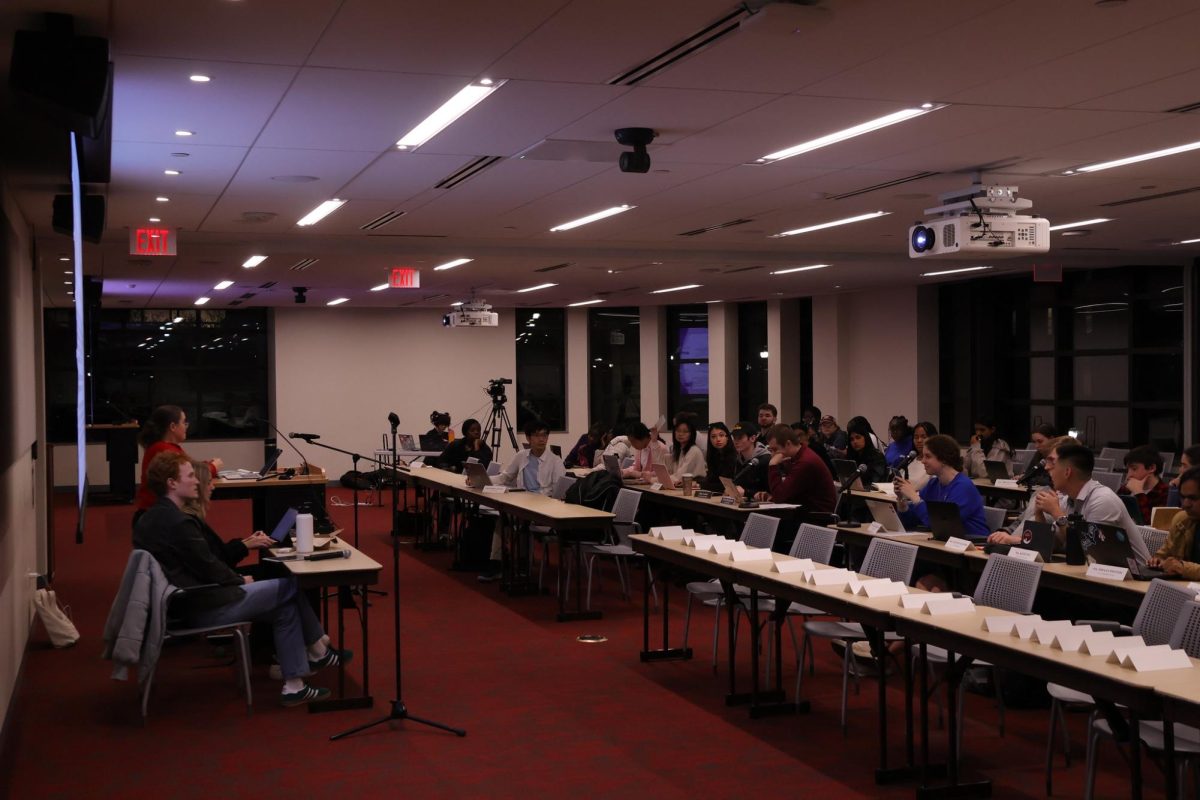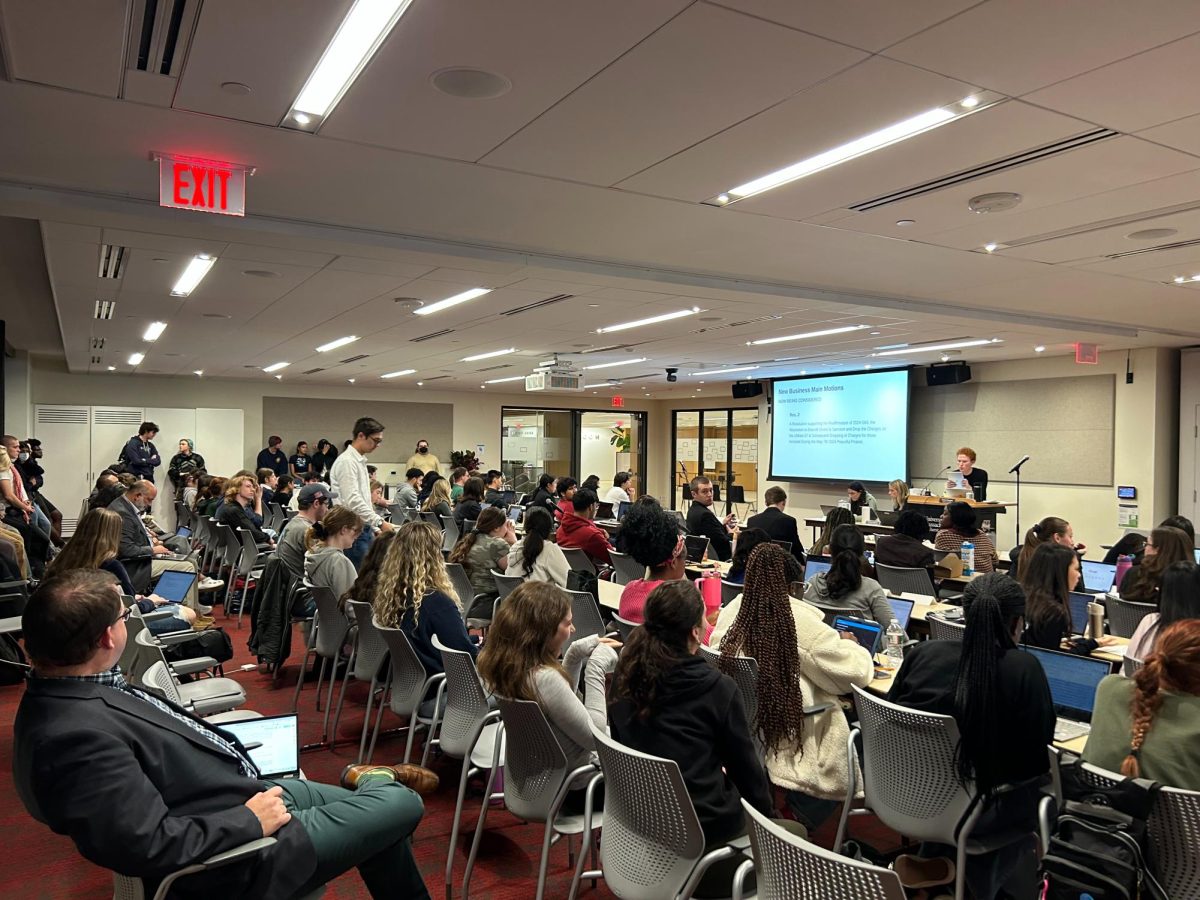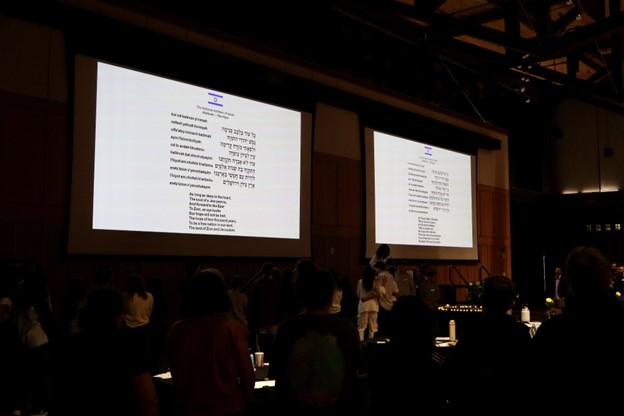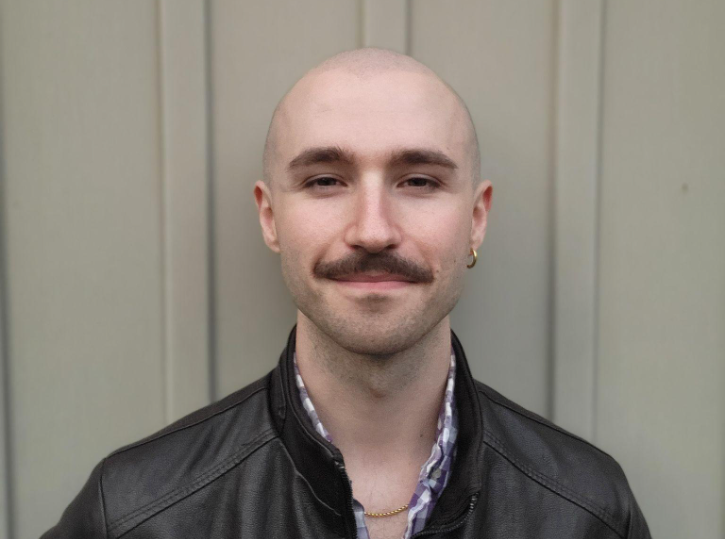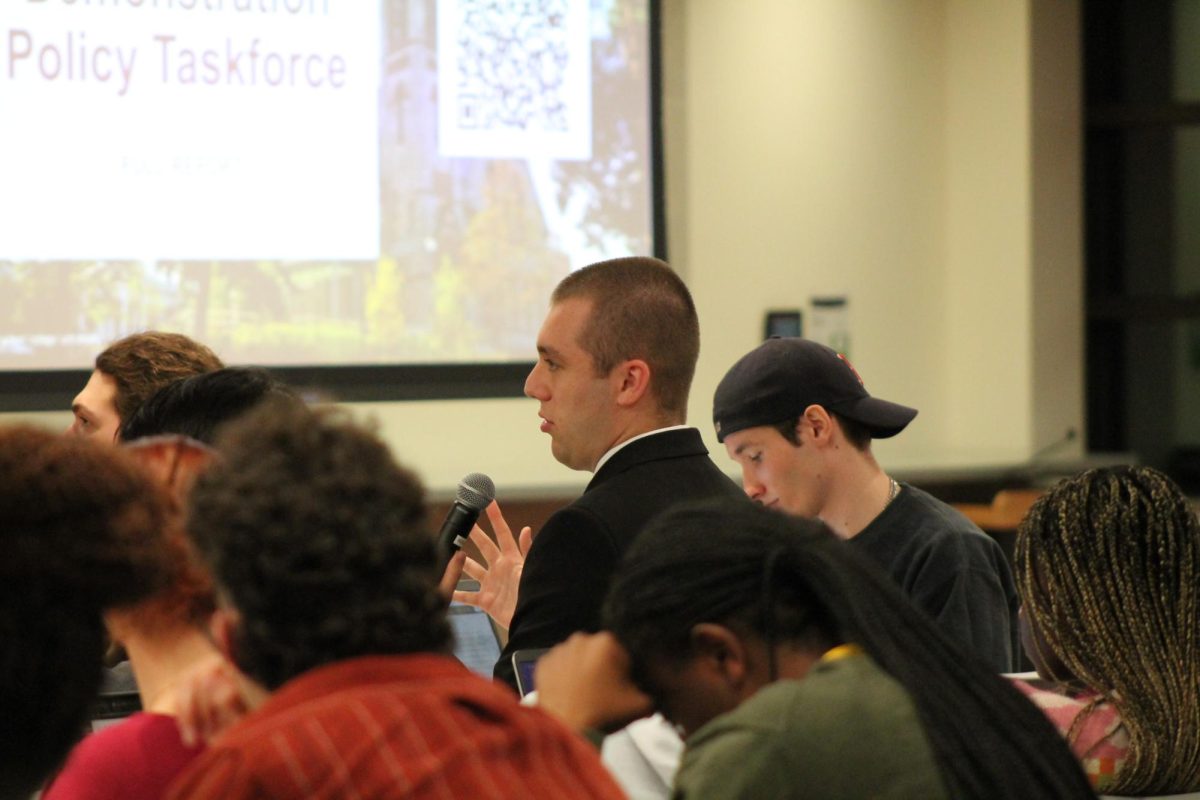
Behind him, the screen flickered with clips from advertisements – people drinking, women in their underwear, men driving flashy cars – while professor of communications Sut Jhally challenged his audience to look at him.
“There is some really good stuff up there,” he said, waving his hands at the screen, tempting students to look. “It’s real. It’s about pleasure. It is really good stuff. But this is where humanity is,” he said, gesturing to himself at the podium.
In his lecture “Advertising & The End of the World,” Jhally argued that humanity is being drowned out, lost in the sea of advertisements that have relentlessly wiggled their way into every facet of American culture.
“They are colonizing more and more space in our culture … displacing what was there,” Jhally said. “They are moving into every nook and cranny of our culture.”
To prove his point, Jhally flashed a picture of a woman walking on the streets of Manhattan. Between her legs, it read, “From here it looks like you could use some new underwear” followed by the information for a lingerie company in yellow spray paint.
Next, according to Jhally, is the moon, where Pepsi has plans to put their logo on it using lasers.
“From the viewpoint of marketing, the sky is a waste,” said Jhally. “The moon is a waste.”
This pervasive flow of ads into our culture has changed American culture from one based on society to one based on the individual, according to Jhally. He explained that today, culture is based on advertising rather than music, art and story telling.
“Culture is the place and space where society tells stories about itself. It is where it expresses itself and where we express our ideas of right and wrong,” Jhally said. “And in our culture, it is the story of advertising that fills the spaces and answers those questions.”
The culture of advertisements has taught people that happiness is found by buying commodities, said Jhally. It is found as an individual level, where the more you have, the happier you are, he explained.
The consequence of looking at the world through his individualistic lens can be devastating, according to Jhally, who warned in the beginning of his speech that ads will not bring real happiness.
“The people of the world will not be able to find true happiness,” he said.
However, the way Jhally sees it, there’s something worse than not finding happiness. The worst possible outcome is death.
“We can’t afford the delusions of the marketplace. They will get us killed,” Jhally said.
He then went on to explain that many of the problems facing the world today are collective. Issues such as climate change, the acidification of the ocean, the depletion of renewable resources and even how the world handles nuclear warfare, cannot be effectively solved at the level of the individual.
“The marketplace cannot deal with our major issues,” Jhally said. “The major aspect of our culture right now is a culture of collapse.”
Jhally explained that society as we know it is at the brink of spiraling into barbarism and that drastic change needs to be made now or it will be too late.
“Marx observed there were two directions capitalism could take: towards socialism or towards barbarism,” said Jhally. “We will end up where we struggle to end up; those choices have never been starker. That actually is what’s before us.”
However, after watching the Occupy Wall Street movement unfold, Jhally thinks there just might be hope for the future.
“It is the start of something that I never thought I would see,” said Jhally. “It is driven by people who realize they have no role, no place, and I am more hopeful now but we have to come us with new ways to look at the world. “
Jhally studies the role of advertising in popular culture and how it shapes identity construction. He has written several books and articles, but is most well known for directing and producing films such as the “Dreamworlds: Desire, Sex, and Power in Music Video” and “Tough Guise: Media, Violence and the Crisis of Masculinity.” He has received the Distinguished Teaching Award and the Distinguished Outreach Award.
Katie Landeck can be reached at [email protected].

